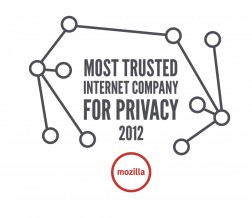Webmaking as Learning
There are several specific issues that affect our ability to bring webmaking into both formal and informal learning spaces.
For one, there are definite hardware and network issues. Some of our learning institutions lack the technical infrastructure to supply learning programs with the high speed internet that is becoming invaluable to webmaking. Others have strong filters and monitoring systems that make it hard to allow interest-driven projects. There are marginalized communities with little or no access to hardware.
As we think about how we might best #teachtheweb, we should make commitments not only to the mashing up of hard and soft skills, but also to the proliferation of access in our communities. Until there is equal access, we need to find ways to teach web literacy skills no matter the technical infrastructure we're tied to.

We can (and should) help people understand the basics of cyber security. Even simple settings can greatly decrease the risk of an attack and protect you and your data. We can empower our learners by helping them create secure passwords, know when a website is secure and turn on firewalls and proxies.
Finally, we need to be aware of how our online movements are documented, how our data is being used, and what we can do to protect ourselves. Lightbeam, an easy-to-use tool that can help us understand tracking, explains that:
“Not all tracking is bad. Many services rely on user data to provide relevant content and enhance your online experience. But most tracking happens without users' consent and without their knowledge. That’s not okay. It should be you who decides when, how and if you want to be tracked.” http://www.mozilla.org/en-US/lightbeam/
The Role of the Educator
A while back, someone proposed that as digital learning rises, we won't need teachers anymore (this isn't the first time someone has said this). This is completely ridiculous of course, but brings up some interesting thoughts on our roles as educators.
Just as the influx of digital technologies has begun to redefine what it means to be educated, so too has this influx redefined what it means to be an educator. Today, learning happens everywhere, and there are teachers everywhere. Some of them identify as “educators” or “teachers”, while others identify as “technologists” or “instructors”. Some of them have regular classes while others are known around the office as someone who “can fix your computer”. What all of these people have in common is that they are mentoring learners. They might be doing it in different ways – some of them mentor professionally, others aren't even aware of their impact – but technology is pervasive enough that anyone with the applicable skills is trying to pull others along.
As we advance our practice and try to find ways to navigate the waters around technology or around pedagogy, we need to consistently turn our focus inward. We need to remember those learning experiences that most touched us. Whether the digital space was involved at all isn't relevant, it's how we interacted with people around us. What kind of freedoms did we have to play and make mistakes and inspire our peers? How were we given constraints to guide us towards learning something specific?
In Webmaking, we need to intermingle participation, collaboration and other “soft” skills with technical “hard” skills whenever we can. Web literacy is not just about coding, and webmaking is not just about digital storytelling. Through interest-driven “make” projects that offer the learner a safe space to explore, we can motivate and inspire our learners to be responsible citizens in both the digital and physical world.





